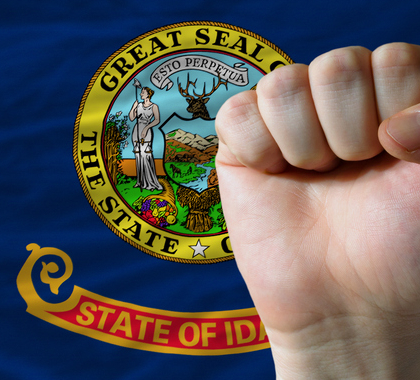Idaho state lawmakers on the joint committee Healthcare Alternatives for Citizens Below 100 Percent of Poverty Level are preparing for the 2017 legislative session a Medicaid expansion proposal to provide health insurance to the 78,000 individuals in the state’s “Medicaid gap.”
Their proposal, however, may not reach the House floor, in light of Congress’s and President-Elect Donald Trump’s promises to repeal the Affordable Care Act (ACA) and block-grant Medicaid funds to states. “No sense in working on the branches of a problem if the root is going to be pulled up,” House Speaker Scott Bedke (R-Oakley) said on November 9, the Times-News (Magic Valley) reports.
The Medicaid gap comprises individuals ineligible for Medicaid and whose incomes are too low to qualify for federally funded health insurance premium subsidies. The Affordable Care Act (ACA) grants subsidies to people with incomes of 100–400 percent of the federal poverty level (FPL) in states without Medicaid expansion programs and incomes of 138–400 percent FPL in states with Medicaid expansion programs.
In March 2016, the Idaho Senate approved the Idaho Accountable Care Waiver Act, instructing the state’s Department of Health and Welfare to apply for federal funds to help cover extending Medicaid to uninsured, able-bodied adults with incomes below the federal poverty line, which is $11,880 for single-person households.
House lawmakers voted 55–12 to reject the bill on March 25. The 2017 session will begin on January 8.
Risk vs. Reward
Wayne Hoffman, president of the Idaho Freedom Foundation, says Medicaid expansion would multiply the current program’s expensive failures.
“We have experience with government-run health care, and we’ve seen that it doesn’t improve quality of life, access to care, or health outcomes,” Hoffman said. “It does create a new revenue stream for big medicine and a dependency on government.”
Expanding Medicaid won’t solve Idaho’s health care problems, Hoffman says.
“The state of health care in Idaho is as bad as other parts of the country,” Hoffman said. “We have out-of-control insurance, skyrocketing prices, [and] less ability of medical practitioners and patients to make decisions.”
The 32 states that have expanded Medicaid have run over budget, Hoffman says.
“One thing we know for sure: States that have passed similar laws, whatever they thought expansion would cost, it always costs more, by a lot,” Hoffman said.
Able-Bodied vs. Needy
Gregg Pfister, legislative relations director at the Foundation for Government Accountability, says Medicaid expansion programs in other states have diverted funds from people most in need.
“On average, 73 percent more able-bodied adults signed up than were ever expected to enroll,” Pfister said. “The result is growing government and reducing state budgetary flexibility, often at the expense of funding for teachers, police officers, roads and infrastructure, and most importantly, the truly needy.”
Medicaid expansion prolongs medical visit wait times for patients already in need, Pfister says.
“Increasing the demand on doctors accepting Medicaid without addressing the supply makes access even more difficult for current Medicaid patients and the most vulnerable people in society: qualified pregnant women, children, seniors, and individuals with disabilities,” Pfister said.
Jordan Finney ([email protected]) writes from Boise, Idaho.




